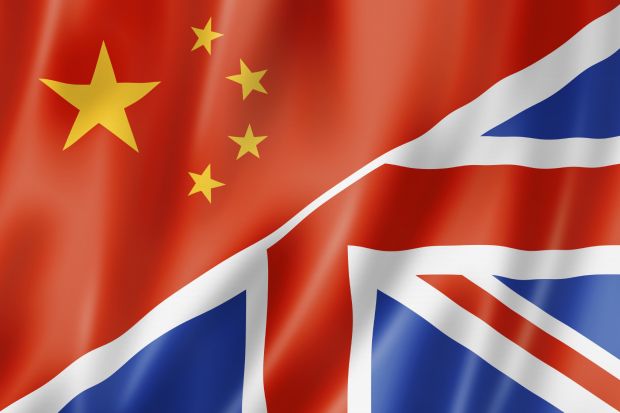Vice-chancellors from some of the UK’s most selective universities have signed an agreement with their counterparts in China to work together to secure funding for collaborations.
Leaders and deputies from some of the Russell Group of universities met with representatives from the C9 League – a group of institutions sometimes described as China’s equivalent to the US Ivy League – on 30 and 31 October.
The delegation also met with some big industrial players in China, such as British pharmaceutical company GlaxoSmithKline and Chinese consumer electronics business Huawei.
Talking to Times Higher Education ahead of the trip, Sir David Greenaway, vice-chancellor of the University of Nottingham, said that the group would explore ways to strengthen relations. Topics discussed included the movement of students and university staff, information sharing and new approaches to complex global challenges such as food security and the digital economy.
Sir David, who is chair of the Russell Group, and Jie Zhang, president of Shanghai Jiao Tong University, signed the Joint Russell Group – China 9 Statement as a result of the discussions.
The universities are planning to work together to secure access to funding schemes that the UK and China jointly contribute to, such as the UK’s Newton Fund for example, as well as the growing pot of research funding available in China.
“This is very much Asia’s century and we need to be part of that,” said Sir David. “China’s growth has been astounding over the past 20 years and that has underpinned a big investment in research and development. Alongside that they are expanding their higher education [system and] they are growing their number of partnerships,” he added.
Sir David said that by 2022, China is set to be the biggest spender on research and development globally.
He added that building partnerships with China would also be important in making the case that the UK should benefit from European research funding. “Whatever the detail of the exit negotiations [over the European Union], we in higher education still do want to be a key part of that European Research Area,” he said.
He said that the reputation of UK universities will help secure the UK’s place in Europe. “Our EU partners will want to partner with us and I think our fantastic global partners will only reinforce that,” he added.
But “first and foremost” working more closely with China will help “bring the best talent together” to help academics work on global challenges, Sir David said.
“Yes, part of the agenda is continuing to make the case that we should benefit from and participate in EU funding arrangements but it is also [about] opening up funding opportunities in Asia,” he added.
Register to continue
Why register?
- Registration is free and only takes a moment
- Once registered, you can read 3 articles a month
- Sign up for our newsletter
Subscribe
Or subscribe for unlimited access to:
- Unlimited access to news, views, insights & reviews
- Digital editions
- Digital access to THE’s university and college rankings analysis
Already registered or a current subscriber? Login







